At the Intersection of Preparedness, Persistence, And Opportunity With Ramani Varanasi
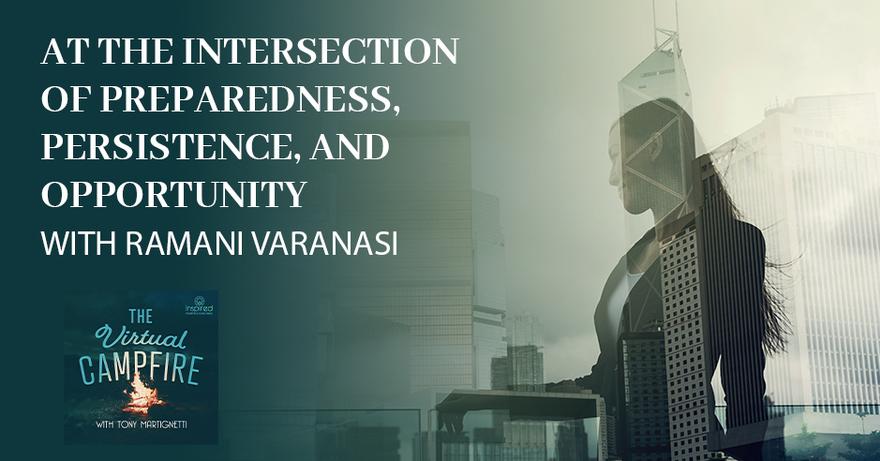
Being lucky isn't simply an occurrence but can be considered a skill, and it usually manifests when you meet opportunity with preparedness. Sharing her insight about success and luck in this episode is Ramani Varanasi, the CEO of X-Biotix Therapeutics, Inc. She gives a sneak peek at what it's like to work in the biopharma industry. She also explains the key role that persistence plays in success in this industry as she talks about the importance of defining success as a company. In this episode, learn what makes a genius and understand why she believes that we all have the power to control our destinies and why we should just make it happen.
Listen to the podcast here:
At the Intersection of Preparedness, Persistence, And Opportunity With Ramani Varanasi
It is my honor to introduce you to my guest, Ramani Varanasi. She is the co-founder, President, and CEO of X-Biotix Therapeutics, a biopharma company based in the Boston area, focused on the discovery and development of novel antibiotics to combat the ever-increasing global issue of multi-drug resistance caused by superbugs. Being attracted to mission-driven initiatives, Ramani has operated with an entrepreneurial vision and passion for launching, building and being part of successful organizations by integrating research and business strategies focused on innovative medicines and solutions having a global impact.
Her strong sense of purpose and committed sense of urgency with the results-oriented attitude have been beacons that have supported her through the navigation for a 25-year career through a research scientist to her role as a CEO. As an Indian-American and as a Canadian and Native Montrealer, Ramani brings a unique multi-cultural perspective for a role as a Biopharma Executive embracing diversity as part of an integrated approach to problem-solving to ensure complete alignment and harmony among the leaders she works with. She lives in Lexington with her family, her eight-year-old son and her new kitten named Finn.
---
I want to welcome you to the show, Ramani.
Tony, thank you very much. I'm so pleased to be here. Even though it's not dark outside, I feel like I'm sitting around a campfire. I love the concept.
I'm so thrilled to have someone like you on the show where we can talk about some biotech concepts. This is my old world. What you have accomplished in your career is so amazing, especially in an area that is such an important thing for us to be focused on in this day and age.
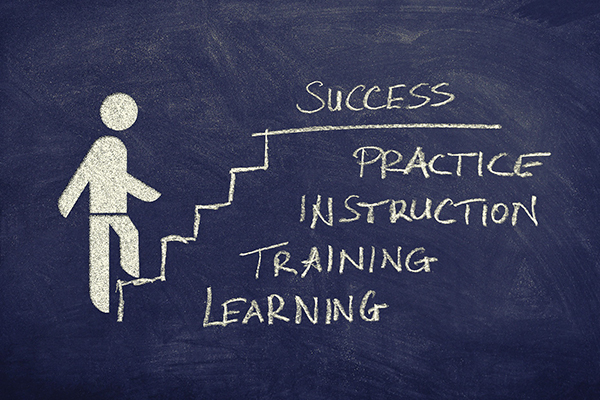
Thank you for the kind words about my career. I often step back and think about where I started, where I am and where I'm going. There is a constant tug of war between those three concepts. I'm so excited to have been given the opportunity on a variety of levels to be focused and working on this challenging concern in the healthcare of drug resistance. I'm happy to talk about, specifically what we have done and what I have learned from it. I'm pleased to be sharing the story with you.
Don't be afraid to geek out a little bit. Sometimes, people think I'm talking about a scientific issue. It's okay. Let's start with the concept of what we do in the show for you and others, so they know what we do here. We are going to give you the space to share your story, how it's evolved and how you arrived at where you are now. We are going to do that through the concept of a flashpoint. These are points in your story that have ignited your gifts into the world. There could be one or many. They don't have to be some dramatic thing. It has to be something meaningful that got you to think, “This is what I'm meant to be doing next.” As you tell your story, let's pause along the way and see what shows up. With that, I will turn it over to you and let you get started.
Let me start at the beginning. It’s funny I was listening to a podcast about the Akashian level which is the level of the ether. It’s when shamans do meditation and they rise beyond the third dimension into a multi-level dimension. Under the Akashian concept, there is no beginning. I'm going to start from my recollection of the beginning. Background in microbiology, I have been at the bench many years ago. I have been in the biotech industry for 25 years. I've been on the corporate side for most of that time. I started off as a Microbiologist. Having been through many iterations of small companies, big companies, biotech, business development and corporate development scientist, I felt that I needed to go back to my roots. My roots being that of a scientist studying bacteria of all things and tiny little bugs that have huge implications that have made such a dramatic impact on our lives on so many levels.
That was how what I'm doing when I started. It started with me saying, “I would love to get back into the world of bacteria.” Specifically, because on a commercial and global level, we are dealing with such a concern of drug resistance with these superbugs coming out, mutating and becoming resistant to all of these antibiotics that infectious disease docs are throwing at them. I thought, “Wouldn't it be great to try to address things at a global level?” I always had an interest in global healthcare. I have been involved in nonprofits in the past that are globally oriented as well. I thought, “This was a great opportunity. Let me figure out a way to leverage my expertise.” That was how the X-Biotix started. I was fortunate to run into a group that I had worked with in the past that had some technology.
All the geekiness comes together and all of a sudden, you've got this company that is now working on this cool idea of targeting, in this case, gram-negative bacteria, which are a type of bacteria that have huge implications in drug resistance. That's how I came about to do what I'm doing. We have built this company over a five-year period. We raised a series and did all the standard things that one would do in the biotech industry to get a company started. Here we are now with some programs in our pipeline, talking to possible partners and other investors to figure out a way to continue to advance some cool science and translate the science into more of a product-focused effort trying to get into the clinic in the near term. That's who we are and why I came to the table with the background that I had.
Genius is actually a mix of inspiration and perspiration.
We talked about drug resistance but there is a word that is similar, persistence that is showing up around what you are doing here. There is an element of continuing to show up and say, “Even though there are a lot of struggles here and these things we are working on are constantly putting up resistance against what we are doing. How do we continue to show up and give them that fight?”
It's so funny you say persistence because it is about persistence. Let me take a step back. In the biopharma world, we don't succeed if we don't persist. At the end of the day, we know what the success of drugs at the other end, which is at the output end is 1 in 10. You can't throw something out there and say, “I'm going to be successful on the first try.” In our case, we are living the dream or the nightmare, whichever way you look at it of the biopharma world. The only way we are going to be successful is by continuing to target and move forward. I link this to the concept of the Energizer Bunny. I use that analogy often, which is I’m like the Energizer Bunny. I don't know if they have commercials about that anymore. Back when I was growing up, the Energizer Bunny keeps hitting him or herself against the wall and keeps going back and hitting against a wall.
The definition of insanity is doing the same thing and expecting a different result. We are not insane here. We are doing different things but expecting a different result. That is how we approach our pipeline, which is to say, “Let's look at different essential targets that are essential for bacteria to survive and succeed. Let's try to target them by inhibiting them. Let's use a panacea approach for the pipeline.” I do want to comment a little bit on the notion of persistence and what does it mean to be successful. I grew up in Montreal. I went to McGill for my undergraduate and then I did my graduate work there. When I was applying for graduate school. I remember sitting in the office of the chair of the department at that time. It was a biochemistry department. He was an older gentleman, distinguished and accomplished. He said to me, “Ramani, how do you define success? Tell me something that means something to you for success.” If you will ask me now, I will say this as well, “Success to me is 1% inspiration and 99% perspiration.”
That is the quote that is often attributed to Thomas Edison. As it turns out, I had done a little bit of research on that. It's not his quote. It might be attributed to him. It's attributed to a woman by the name of Kate Sanborn in the late 19th century. She was an academic and giving a series of lectures on what is genius. Somebody asked her, “What is genius?” She said, “Genius is a mix of inspiration and perspiration.” For me, it's all about working hard and working smart. You've got to be inspired. You've got to have that spark but then there is a component of being successful that requires one to continue to not just push hard in the same direction but learn from our failures and then move towards success.
We embody that at X-Biotix. Every biotech embodies that concept of, “We have to be successful, but we've got to work hard and learn from our mistakes to get there.” The other thing I will add also is my definition of success. It has morphed ever so slightly. The way I look at success and this is true with everything we do at X-Biotix, is about doing things that we are proud of. I can go off on a tangent and talk about how we, in our industry, defines success. It's a prescribed definition of success. If you raise a certain amount of money, if you have a certain type of pipeline, if you have a certain cachet of investors or a cachet in terms of the board, you are “successful.” I would put on the table that we might need to morph that definition of success. Coming back to the comment about persistence, we have to persist. We have to continue to try to deal with this challenge of bacterial resistance. It's staring us in the face. We are living in a pandemic. If nothing else, we are learning from this pandemic that we have to be prepared. In order to be prepared, we have to persist. I completely agree with your linking of the terms here, persistence and resistance.

There is something that you mentioned that resonates with me. It’s, you have to have your own definition of success as a company, but also personally. That is even more important, a personal definition of success. It can't be defined based on other people's views of success because if it is based on the street or based on the outside world then it's hard to live up to that. I will let you comment on that and then I have a question.
We beat ourselves up whether we are checking other people's boxes. We've got to create our own boxes to check. That is something I have been spending a lot of time on during our COVID isolation or quarantine. As the leader of this company, I have been given such a great opportunity to be in this position to drive our initiatives. How are we as a company defining success? Is it by how the industry guides us to define it, which is you have raised X amount of money, you've got the cachet of investors? I would argue that, at the end of the day, there are so many companies who may not have the types of typical investors. Also, who may not have the type of management teams that you would typically expect a company to have but are making headway and charting a new path and new territory in terms of the areas they may be focused on.
As I've lived through this pandemic and dealt with all the ebbs and waves of the rollercoaster that the pandemic has put in front of all of us, I, as a leader and CEO, have pulled the team together. On a daily basis, we talked about what is going well, what is not and how are we going to define success for us this week, next week, and going forward. It translates to personal and corporate definitions. It's something that we keep checking in on because we don't want to be straying away from what our mission and vision of the company are.
I love your attitude and I love the way your view on business and leadership but also your view on life. I want to take you back to the time when you were on the bench and you had this pension to move into something else. What was it that drove you to move past the bench? Get me into those times and the days you said, “I wasn't fulfilled?”
What made me go from that move from the bench to doing something that was not bench-oriented was a spark. It was that inspiration piece that we talk about. If I had to break it down to the technicalities, I felt like I was being pigeonholed. I was pigeonholing myself and I was going deep and narrow as opposed to broad and more leveraged. I felt a desire to have more of an impact to add more value. I felt that holding a pipette, looking at a petri dish and bacteria, there was a certain type of value I was adding but I wanted to have a different type of impact. I want it to have a bigger impact. I'm not going to say a better impact because it's all relative like better versus not better.
Luck happens when preparedness intersects with opportunity.
There was something in me that said, “There is so much more out there. There is a world out there. Why don't you go discover it?” The reason I call this a spark is that that was where my entrepreneurial spirit was ignited. It’s the desire to learn more, do more, have a bigger impact and drive my own success. Support someone else's success in the lab was great but I wanted to craft my own story. The only way I know how to do that was to step away from the lab and to do something I had never done before. The other thing I like to do, perhaps with age and I'm getting more nervous about it, is stepping into the unknown more.
For me, I like to have a balance of 50% doing things I'm comfortable with and then 50% going into the space of unknown discomfort. I find that, perhaps as I get older, I'm getting less comfortable with the discomfort. I have to battle that urge to not want discomfort. Coming back to your question, what drove the desire for me to move from being at the bench to not being at the bench was this desire to know what else was out there. It was such a big world. I figured there are other ways I could add value. I went on an exploration and I landed in a bunch of different places.
That is what it is. Knowing that there are more for you out there and then taking the leap to jump into that and saying, “This is what I'm going to do to make that happen.” Not having a plan sometimes, that is the best way to do it. It's to say, “Let's explore. Let's see what shows up.” What showed up is a career full of amazing accomplishments that eventually ended up in where you are now.
There is s always luck. Lady luck shows up when you least expect her to. People have defined luck. It happens when preparedness intersects with opportunity. I felt prepared to do something different. I have that raw, gut confidence. I needed an opportunity. Be it as it may, the opportunity and the preparedness coincided. I was lucky to find something that was in the realm of what I knew, which was Science and benchwork but within the confines of a big company that was doing lots of great things and trying to change the world a company called Millennium Pharmaceuticals. I went to Millennium. That experience opened up a whole world of opportunity for me in terms of what I knew, what I didn't know and what I had the opportunity to learn. That was a launchpad for me. I wanted to comment a little bit on the notion of luck and how that plays such a big role in all our careers, whether we realize it or not.
Some people think like, “My intuitions drag me to go here.” Intuition is another thing that people talk about a lot. The reality is intuition has to be founded on that experience and preparedness. Until you have built some element of preparedness, you can't follow whatever shows up. You have to build a little bit of a foundation that says, “I know a bit about myself and the world. It gives me confidence that I'm doing something. Even if I don't know where I'm going, at least I have a foundation to fall on and some experience.”
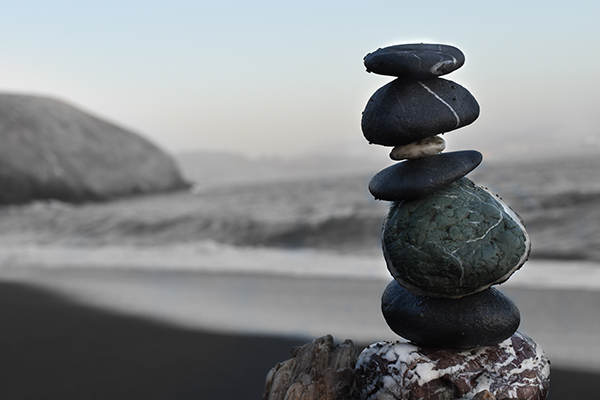
The opportunity to be part of something bigger than yourself is enticing. It's attractive to be able to say, “I am part of something bigger than myself.” When I go hiking, I love being out in the wilderness and on mountains because you are a tiny little speck in the context of this huge expanse of nature. That was what drove me to open the door and say, “I was nervous as heck. AGW hockey sticks, as they say in Canada. I have no clue what I'm doing but I put one foot in front of the other.” Knowing that partly my intuition was guiding me but also knowing that the universe would somehow accommodate for what I wanted to do and would allow me to land.
I want to dig into one other thing about this big company and small company dynamic. A lot of people who have been successful in the biotech industry have come from a big foundational organization. They've got the chance to build that experience in a big company maybe it's Big Pharma or it's in a large, biotech and then eventually, they get that itch to get out and be in that entrepreneurial endeavor. Speak to me about that feeling. What got you to want to leave Millennium?
I spent ten years at Millennium back in the ‘90s. It was biotech. It was never a Big Pharma. It was a big biotech company and it wasn't so big, and then it became big again. To bring it down to the brass tacks of career perspective, I felt it was not prudent for me to stay at anyone’s company for longer than X period of time. I felt I had learned a lot at Millennium perhaps, I learned as much as I possibly could in the context of the environment that I was in. Again, much I did back in my bench days, I felt like there was the world calling out to me. There was something more I could do, some other value I could add in a different place and different way. I thought, “I have learned everything I can. I have made some great friendships, great colleagues and great experiences. Let me see how I can take this and then leverage it into an area that I haven't touched upon.” As part of going back to that comfort zone, I was comfortable. There was no reason for me to leave that environment but that was where I find discomfort in being too comfortable. I felt the need to go back to my 50/50 Rule where I say, “I got to dive into the deep end. I don't know what that deep end is, but I have to start looking.” That was what drove me to seek, look externally, see where else I could add value, and grow professionally but also grow personally.
That preparedness meets opportunity and that seems to show up right at that point. You were like, “It's time. I have built these experiences and this world. I'm ready for that next thing to happen.” It's cool how you described that and being uncomfortable with being comfortable.
For me to be a productive member of society, I have to be motivated. If I'm comfortable, where is that motivation coming from? It was a little bit combination of, “I'm not as motivated as I used to be. I'm comfortable. I feel like I'm a paper pusher. I'm clocking in, clocking out. I'm not leveraging what I have learned.” It's this constant need. I tell my son, “We have to have a growth mindset.” It's this notion of having a growth mindset. I'm doing it in a way that is productive and where one can truly add value. During that journey, identify where you truly can add value. That was another time for me where I said, “I have made some great connections, contacts, friendships and learned a lot. It's time for me to take what I have learned, apply it somewhere else and add value to another team elsewhere.”
The opportunity to be part of something bigger than yourself is enticing and very attractive.
There is something about this that I didn't think lands well for this day and age. It’s that uncertainty is a great motivator. When you are doing the same thing over and over again, when you get in that pattern where you are stuck, you are not motivated. When you are feeling that there is an element of uncertainty, there is an ability to control how you show up that next thing because you are like, “I don't know what the future is going to bring. That makes me excited because that means I can control how the outcome is going to show up whereas if it continues to become a pattern, no matter what I do, it's going to continue to be the same.”
The notion of the sameness, the continuity and the boredom perhaps may come out of that. It’s taking a risk versus no risk. Going back a little bit to my flashpoint on why I decided to take this leap into X-Biotix, be an entrepreneur and started, I had a conversation with my family about it and I said, “I am scared about doing this. I have a fear of failure. I have no clue how I'm going to make this happen.” They said to me, “You can have the fear, that's great but do you want to look back years from now and say, ‘If only I had done it,’ or do you want to say, ‘I did it. I was successful?’” Going back to my definition of success, which is something I was proud of and I was successful, what my family said to me is, “It's up to you but at the end of the day, you will never know until you try.” That's the link to the unknown. Taking a leap of faith, jumping right into fear and having that safety net somehow catch you. Fast forward to companies that I have been at, every move I have made, they have been quite strategic. There is a tactical component to everything in life. Strategy-wise is always about, “I want to be part of something bigger than me,” but also want to leverage all the value I have developed or established to date into something different where I can add a different kind of value.
I love this term. I have heard it from the coaches that I have worked with in the past. It's called transcending and including. It's about taking what has been in the past that you have built the foundation you built, including that and then transcending it. What can you use to move past it? When you think about what you are doing now, it's transcending all of the things you have done in the past and making it even more beautiful than it has been in the past.
It hasn't been without its challenges. That thing is a straight path. We all wish it would be but that is where the beauty of the journey lies. You are constantly navigating the various channels. I have had to navigate them on professional levels and deeply on personal levels as well. Part of the theme that I have stuck to unknowingly, is the sense of persistence. The only way I'm going to overcome anything, whether it be building the company and dealing with the challenges associated with building a company or raising my son and dealing with all other personal issues, is continuing to push forward knowing that there was no barrier. It’s a landmark in your journey of life.
Many things you have shared are great little nuggets of truth. You have learned so many great lessons. What are some things that you haven't shared that have been great lessons you want to share? There might some things that have a-ha moments that you are like, “This is an insight.”
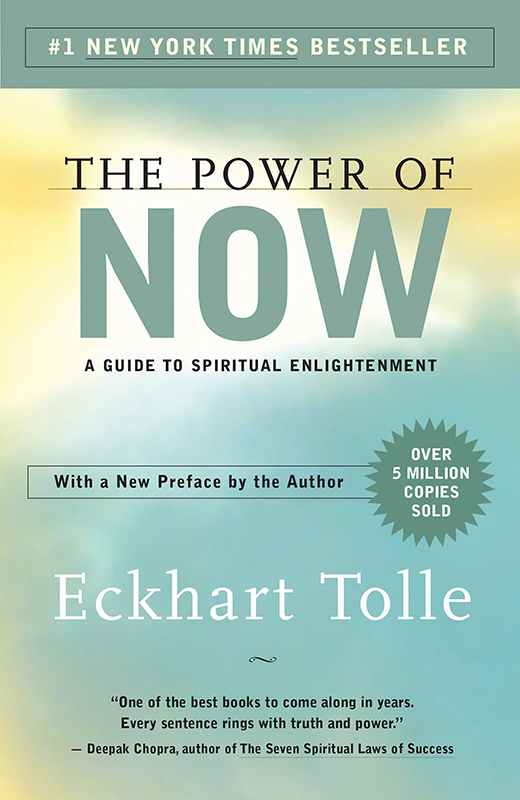 I will come back to the concept of persistence. I'm persistent as a person. I will share something personal here. I'm happy to share it because I'm at that point in my life where showing vulnerability is okay. In order to have my son, my husband and I went through thirteen IVF cycles. Talk about persistence, most people would use to or do say to me, “Ramani, you are crazy.” I said, “No. I know I'm going to have a child.” The intuition is guiding me through my journey of infertility, which by the way, is a disease. There are tools out there to help people. Lessons learned, you will never know until you try.
I will come back to the concept of persistence. I'm persistent as a person. I will share something personal here. I'm happy to share it because I'm at that point in my life where showing vulnerability is okay. In order to have my son, my husband and I went through thirteen IVF cycles. Talk about persistence, most people would use to or do say to me, “Ramani, you are crazy.” I said, “No. I know I'm going to have a child.” The intuition is guiding me through my journey of infertility, which by the way, is a disease. There are tools out there to help people. Lessons learned, you will never know until you try.
I constantly live in this world of imposter syndrome and vulnerability. Do I want to show it? Do I not want to show it? At the end of the day, what I have learned is the only way I can be myself, to be authentic. This is me doing my best at what I possibly can do my best at. The lesson learned is to be your true self. I often used to hide behind a shadow of who I wanted Ramani to be seen as. It's about the be-who-you-are. Instead of having your to-do lists and saying, “I check the box.” It's about having your to-be-list. Be the best you can be. That has taken me a long time to acknowledge and become aware of, but it's something I think about a lot.
As a woman of color, let me bring the diversity piece into this, especially given that we were living in a world where we are so aware of diversity, equity and inclusion, let nothing hold one back. Use your voice. To people out there who feel marginalized, set aside or unheard, you have a voice and a brain. Use it. You have an opportunity. If you don't create it, make it happen because we do control our destinies. Even though I do believe in the universe guiding us overall, we do have control over certain aspects of what we do in our lives. My tagline on either my LinkedIn or my Twitter profile is, “Make it happen.” That's something I have to keep reminding myself. It's a lesson learned and it's not like I've got it under my belt. It's something I have to keep reminding myself every day. Whether I come to the table fully on a personal or a professional basis, I come to a call and a discussion truly as my authentic self. That is what I keep promising myself that I will do. That has been a huge lesson learned for me.
Many things you shared are amazing. I don't even know how to follow that up. There is one thing I wanted to say that was so powerful around embracing your voice and using your voice, people. That is what I want people to use. If it was something that I could have as my dying fight, it’s to make sure that the people who are being quiet and holding themselves back would embrace their voice and use it because there are so many people who are playing so small because they are afraid.
I put it in the bucket of personal power. We all come to the table and this world with personal power. The gift we have been given is personal power. Therefore, it's almost our responsibility to use it in the right way. We are all different people. We all have different personalities. Some are more gregarious, extroverts, introverts but our voices, whether we physically use our vocal cords to talk or whether it's through the power of writing, there are ways we can communicate. The lesson learned for me is, stand up for yourself. As a woman of color, if anything, I have never considered that as something that has held me back. I consider that a unique piece of who I am. I can bring that uniqueness to the table. I can add that value. Coming back to the key element for me of adding value, where I add value is I bring a unique perspective to everything I do, both on a professional and personal basis. I believe that. When I fail to believe it, I remind myself of it.
You have a voice and a brain; use them because, at the end of the day, we control our destinies.
We are going to shift gears to our last question, which is completely different than what we have been talking about but it's still important. What is one book or books that have had an impact on you and why?
The Power of Now Journal by Eckhart Tolle. It's so raw. If you took nothing else away from the book, it's about living in the now. It's almost diametrically opposed to how professionally we have to conduct ourselves because we are always planning for the future, contingency scenarios and what-ifs. There is a component that is required. What I keep reminding myself after having read the book, which resonated with me well is you have to live in now and you have to live forward. There are all sorts of affirmations out there about what the past is and what the future is. That book has had a true impact on me. Another book that is in our space of biopharma, drug development and what it means to get drugs to patients that have a human component to it and a philosophical component, I would argue is the book Being Mortal by Atul Gawande. It talks about what it means to try to extend the quality of life for an individual who is not going to survive much longer than a month or two.
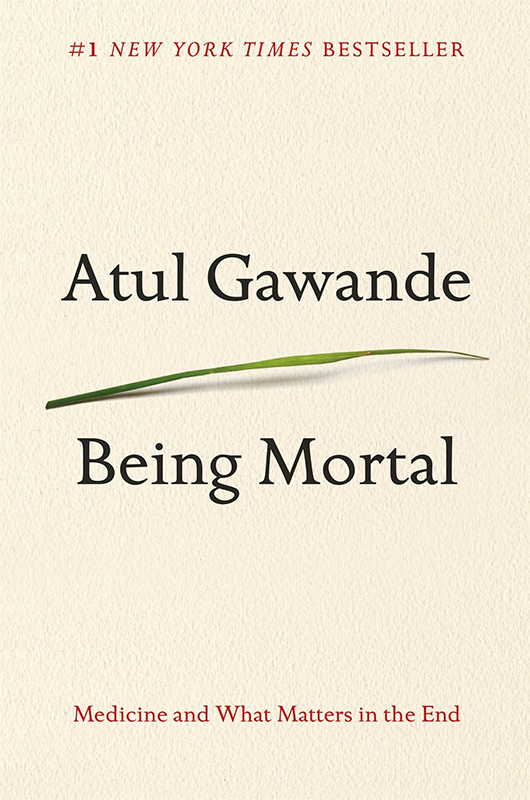 Are we, as practitioners in the industry, trying to service our own egos by saying, “I can give you a drug that is going to make you live longer?” If so, should we not instead be looking at the quality of life and what value to bring that word into the discussion? What value are we placing upon or imposing upon this individual we are trying to treat? I liked that book because it pulled together all the concepts of drug development, what it means to be successful in developing a drug and getting it to the patient with the patient perspective about, “I don't want one more month of life because it's not going to be value-added to me. I would rather rest in peace.” That was another one that had an impact on me more from a professional level.
Are we, as practitioners in the industry, trying to service our own egos by saying, “I can give you a drug that is going to make you live longer?” If so, should we not instead be looking at the quality of life and what value to bring that word into the discussion? What value are we placing upon or imposing upon this individual we are trying to treat? I liked that book because it pulled together all the concepts of drug development, what it means to be successful in developing a drug and getting it to the patient with the patient perspective about, “I don't want one more month of life because it's not going to be value-added to me. I would rather rest in peace.” That was another one that had an impact on me more from a professional level.
First of all, Atul Gawande’s books are so powerful. I'm such a huge fan. It's funny about Eckhart Tolle when he wrote that book, The Power of Now. It was a book that cuts through the noise at the time when it came out. The people who read it took notice and they said, “This is meaningful. It's not like everything else.” I don't know if it's the way he wrote it or the things he said in it. It resonated so much with so many people.
It was written several years ago, 1997 or so. I don't think mankind was as in touch with who we are as an individual as we are now. To your point, Tolle was revolutionary in his thinking back then and put something out there that people took notice of.
Now, there are a lot more similar stuff out there. I can't thank you enough for coming on the show and sharing all your insights and your stories. I feel like there is so much to react here, take in and integrate. Thank you for coming on.
Thank you very much, Tony. I'm grateful that you asked me to be on. It was such a pleasure to speak with you again.
In case people wanted to find out more and to learn more about your company, where can they find more information?
They can look on our website, www.X-BiotixRx.com. You can find me on LinkedIn. I'm not active on Twitter even though I have a Twitter profile. I need to figure out how to get better at being more public about things like that. LinkedIn and our website X-Biotix is where they can find us.
Thank you and to the readers for coming on the journey with us. I know you are leading with so many great insights.
Important Links:
- X-Biotix Therapeutics
- Ramani Varanasi – LinkedIn
- Millennium Pharmaceuticals
- The Power of Now Journal
- Being Mortal
About Ramani Varanasi

President & Chief Executive Officer (Co-Founder) at X-Biotix Therapeutics, Inc.
Specializing in the development of novel small molecule antibiotic scaffolds for multi-drug resistant (MDR) gram-negative pathogens to address the urgent and growing global threat of antibiotic resistance.
Applying a multi-target strategy to generate a pipeline of effective antibiotics with inhibitory activity against a wide range of biological targets in essential pathways of gram-negative bacterial cells and which are also predicted to defeat known antibiotic resistance mechanisms.


0 comments
Leave a comment
Please log in or register to post a comment